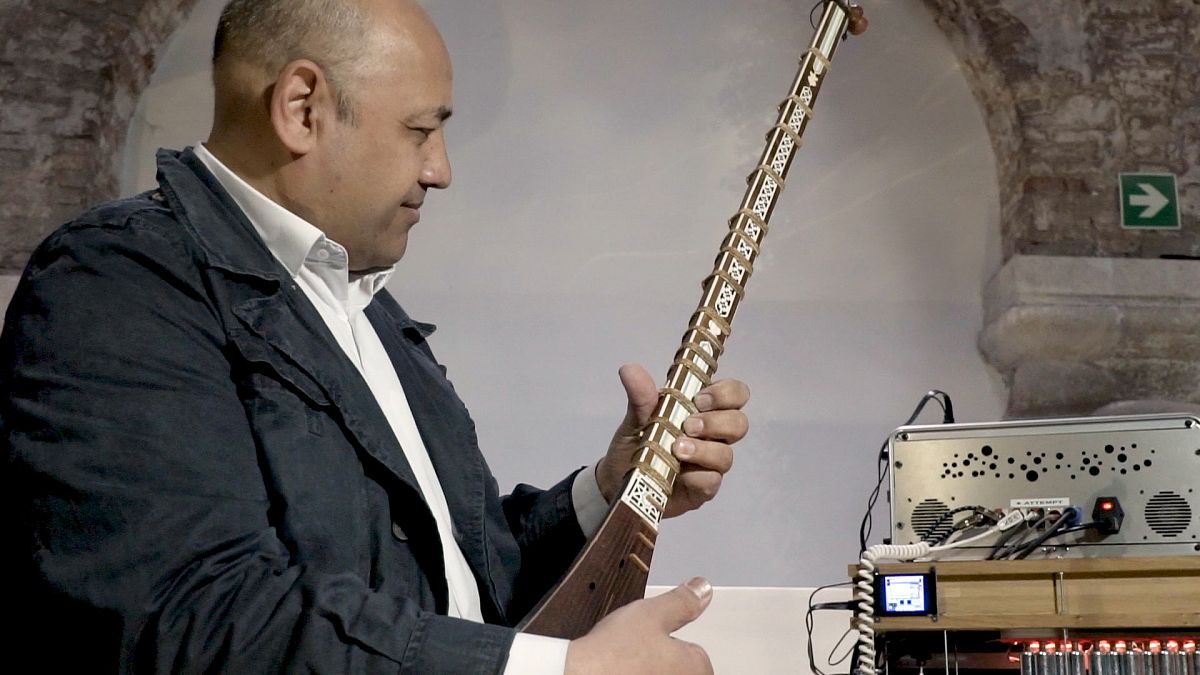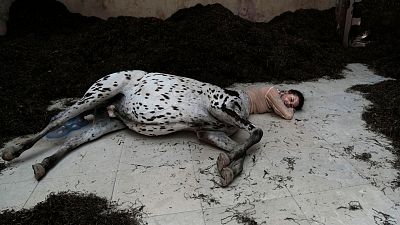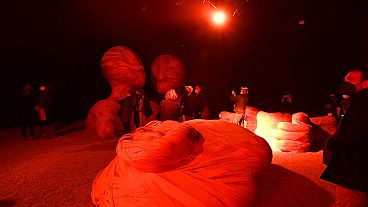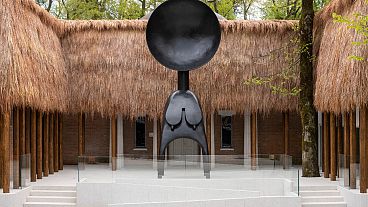With the pandemic under control, Venice is ready once again to host the Biennale Arte. And for the first time, Uzbekistan has its own pavilion, just a year on from its first participation in the architecture edition.
Milk of Dreams is the title of the 59th edition of the Biennale Arte in Venice. Eighty countries are taking part and for the first time Uzbekistan has its own pavilion.
A platform for exchanging knowledge
It’s not a classic exhibition, not a container for works of art. Rather it’s a platform that people can use as a place for conversation, for exchanging knowledge and learning from each other.
“During the Biennale, you can feel and breathe art everywhere. This edition is more vibrant than ever: the desire to share ideas and spaces is back. And, above all, the desire for beauty. A beauty that is here at every turn,” says Euronews correspondent Marta Brambilla Pisoni.
“It is a great pleasure to see that the National Pavilion Uzbekistan facilitate creative exchange between artists and musicians, both from Uzbekistan and abroad,” said Saida Mirziyoyeva, Deputy Chairwoman of the Council of the Art and Culture Development Foundation of the Republic of Uzbekistan.
A chance to learn
Giving everyone, especially young people, the chance to learn is the aim of Gayane Umerova, Executive Director of Art and Culture Development Foundation of the Republic of Uzbekistan.
“The educational programme is basically the essence of our pavilion because we fulfil this space and this atmosphere with education,” Gayane Umerova, Executive Director of Art and Culture Development Foundation of the Republic of Uzbekistan says. “We will invite curators and artists and historians to engage together with Uzbek artists and to create this kind of vibrant atmosphere of engagement of support to each other and also to create a place of knowledge where basically everyone can learn from each other. It is like a meditative place where everyone can feel natural in order to expose their knowledge, to learn but also to give back”.
The Uzbek origins of algorithms
The sea lavender bushes, with their delicate scent, stimulate the imagination. "The Garden of Knowledge" is inspired by the ancient Islamic tradition of the garden as a space for sharing and exchange. This scientific and cultural heritage played a key role for curator Josef Grima from Space Caviar Studio.
“The Pavilion of Uzbekistan is specifically a reflection on the work of a very important polymath and mathematician scientist from the 9th century called al-Khwarizmi,” says Grima. “He left an incredibly strong legacy even in the field of computer science. The word algorithm even is a reference to Uzbekistan in the sense that it comes from algorithm from algoritmi of the Latin name of al-Khwarizmi, who was from the Khwārezm region of Uzbekistan. And this idea that in fact, the things that we take for granted have so many more layers of meaning and so many connexions to other cultures and other places is something that we found deeply fascinating.”
And it is also through algorithms that Charli Tapp, artist and composer, and Abror Zufarov, a famous Uzbek classical musician, make their instruments talk with each other: the piano and tanbur dialogue through an evolving algorithm which will be enriched by the work of other musicians invited to contribute to it during the coming months at the Venice Biennale.




